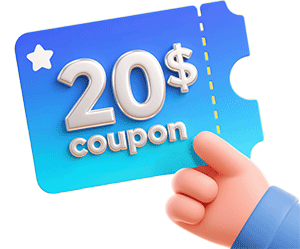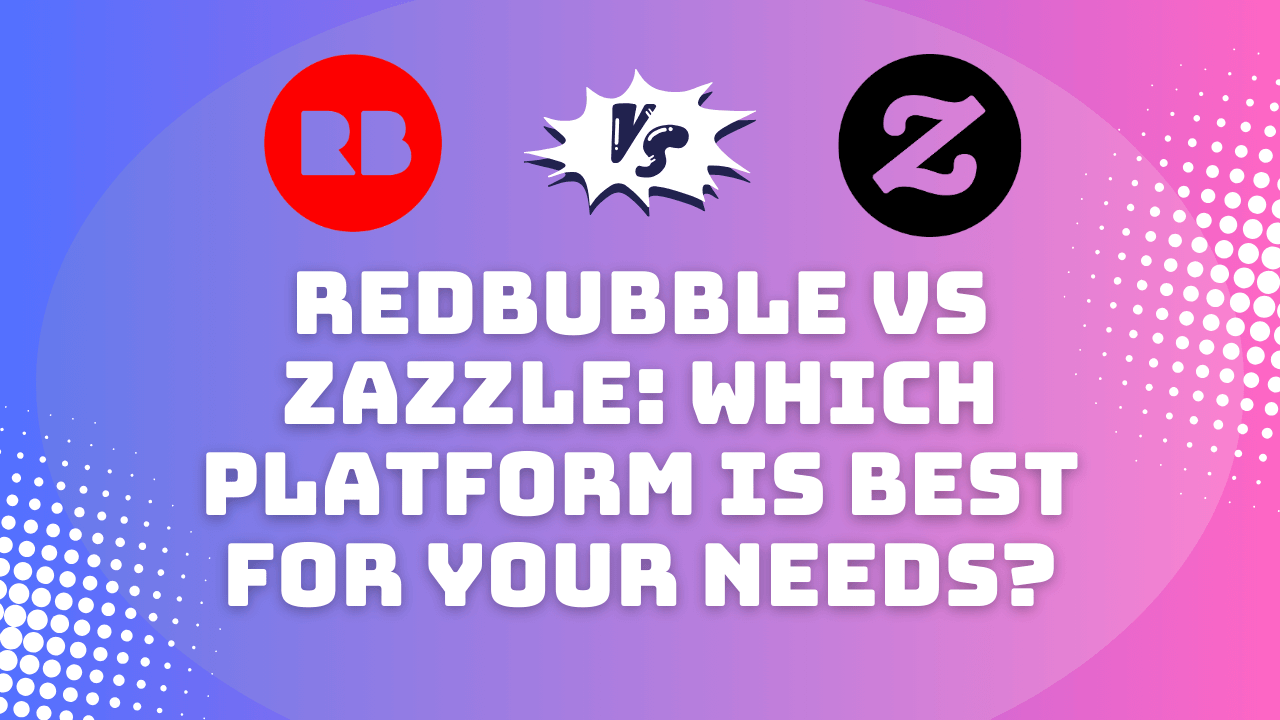
Deciding between Redbubble and Zazzle can feel like choosing the perfect canvas for your masterpiece. Both platforms offer unique opportunities for creators to showcase and sell their work, but which one is right for you? Whether you're an entrepreneur looking to expand your brand, a designer eager to share your art, or anyone in between, this blog will break down the strengths of each platform. Let's dive in and find out which one aligns best with your creative vision and business goals. Ready to embark on this journey? Let's get started!
Introduction to Redbubble and Zazzle
Redbubble: A Creative Haven for Artists
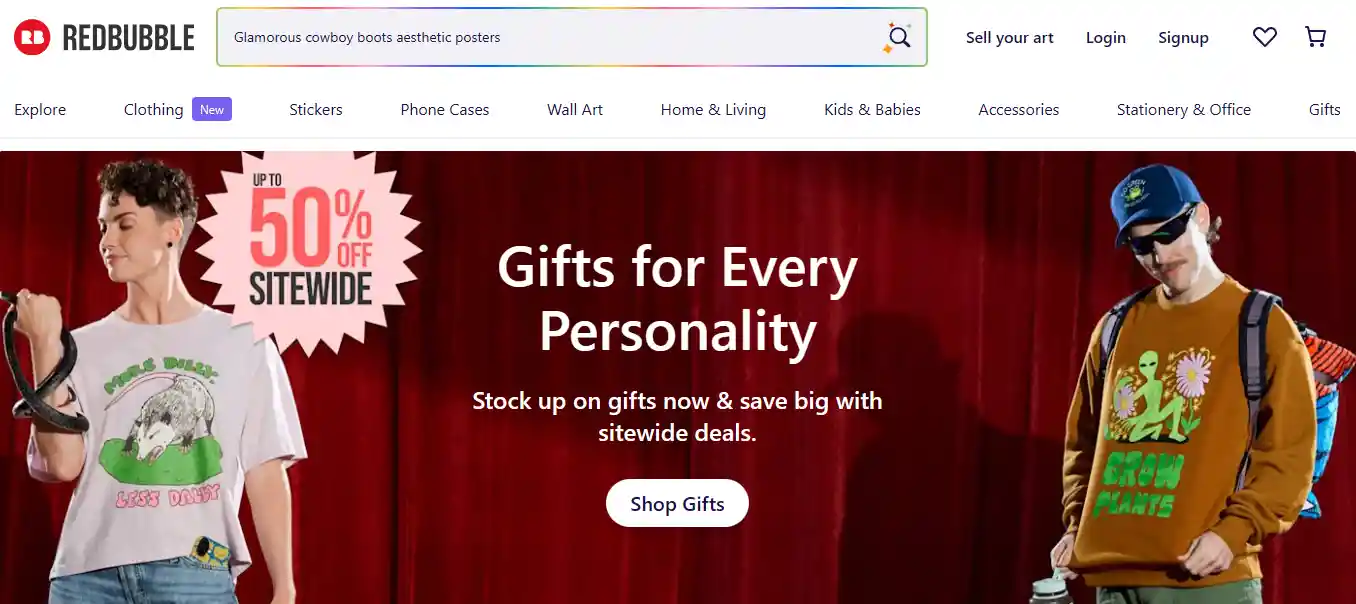
Redbubble, founded in 2006, has carved out a niche as a vibrant marketplace for independent artists. Imagine a bustling online gallery where your designs can be printed on everything from t-shirts and hoodies to phone cases and home decor. What makes Redbubble truly special is its community-driven approach. It's like a social network for creatives, offering tools that make it easy to upload artwork and start selling in no time. Plus, with Redbubble taking care of printing, shipping, and customer service, you can focus on what you do best—creating.
If you're exploring sites like Redbubble, you'll notice that few capture this same artistic community vibe, though some platforms come close by offering similar print-on-demand opportunities.
Zazzle: The Customization Powerhouse
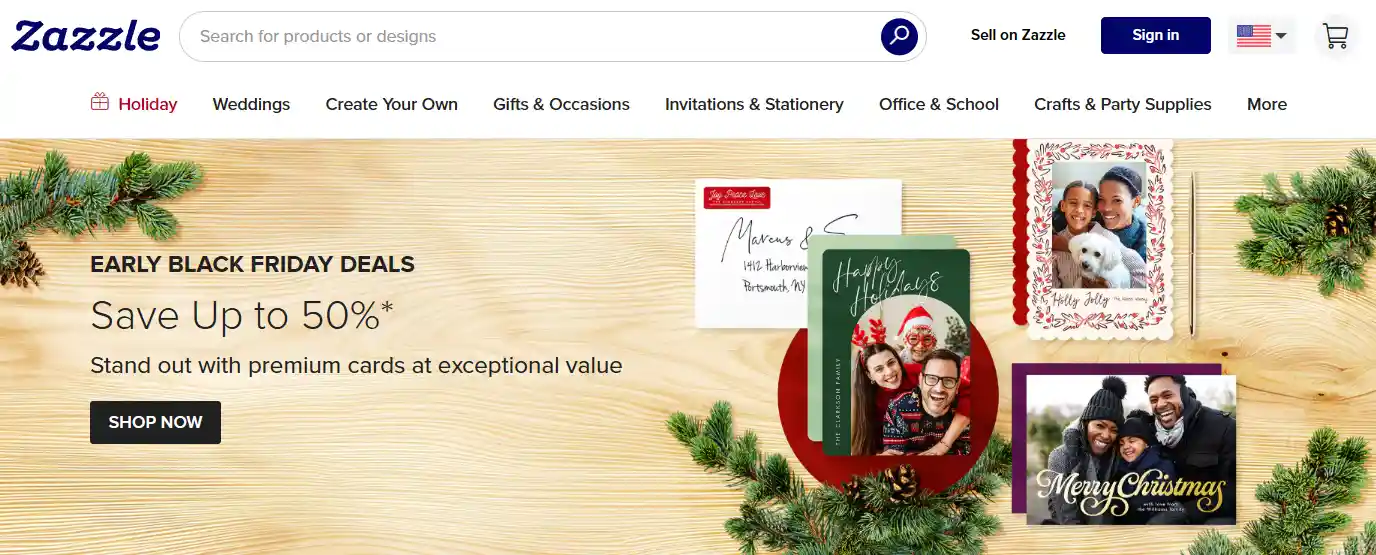
Established in 2005, Zazzle stands out with its extensive range of customizable products. Think of it as a digital workshop where both artists and businesses can create personalized merchandise down to the tiniest detail. Whether you're an artist wanting to offer unique items or a brand looking for custom solutions, Zazzle's powerful customization tools have got you covered. The platform also caters to larger organizations needing bulk orders, making it incredibly versatile. With Zazzle, the sky's the limit when it comes to product variety and personalization options.
However, when comparing Zazzle vs Redbubble, the key distinction lies in customization depth—Zazzle excels in letting users personalize every element, while Redbubble focuses more on artistic expression and ease of use.
The Main Difference Between Redbubble and Zazzle?
Choosing between Redbubble and Zazzle can feel like picking the right tool from a well-stocked toolbox. Each has its unique strengths, tailored to different needs. Here's a neat table to help you see the main differences at a glance.
| Feature | Redbubble | Zazzle |
| Community Focus | Strong artist community, like an online gallery | Less community-driven, more focused on customization |
| Target Audience | Independent artists and designers | Artists, businesses, and organizations |
| Revenue Model | Artists earn a percentage of each sale | Sellers can set their own profit margins |
| Customization | Limited customization options for buyers | Advanced customization tools for detailed personalization |
| Order Fulfillment | Handles printing, shipping, and customer service | Also handles fulfillment but offers bulk order options |
If you're doing a Redbubble vs Zazzle comparison, it really depends on whether you value community and simplicity (Redbubble) or control and customization (Zazzle).
Redbubble vs Zazzle: A Detailed Comparison
Website Traffic and Ranking
When it comes to website traffic, both Redbubble and Zazzle attract significant numbers. According to Similarweb, as of last month, Redbubble had a global ranking of 2,740 and Zazzle had a global ranking of 5,647. Think of Redbubble as a bustling art market, drawing in millions of visitors who are eager to discover unique designs from independent artists. It's like walking through an eclectic street fair where every stall offers something new and exciting.
Zazzle, feels like a massive online mall where you can find just about anything customized to your liking. It's the go-to place for those who want personalized products for any occasion, from corporate events to personal celebrations. Both platforms rank well on search engines, but their audiences might differ slightly based on what they're looking for—artistic flair versus customizable products.
For creators exploring best alternatives to Redbubble, Zazzle often ranks among the top choices because of its broader product range and stronger customization tools.
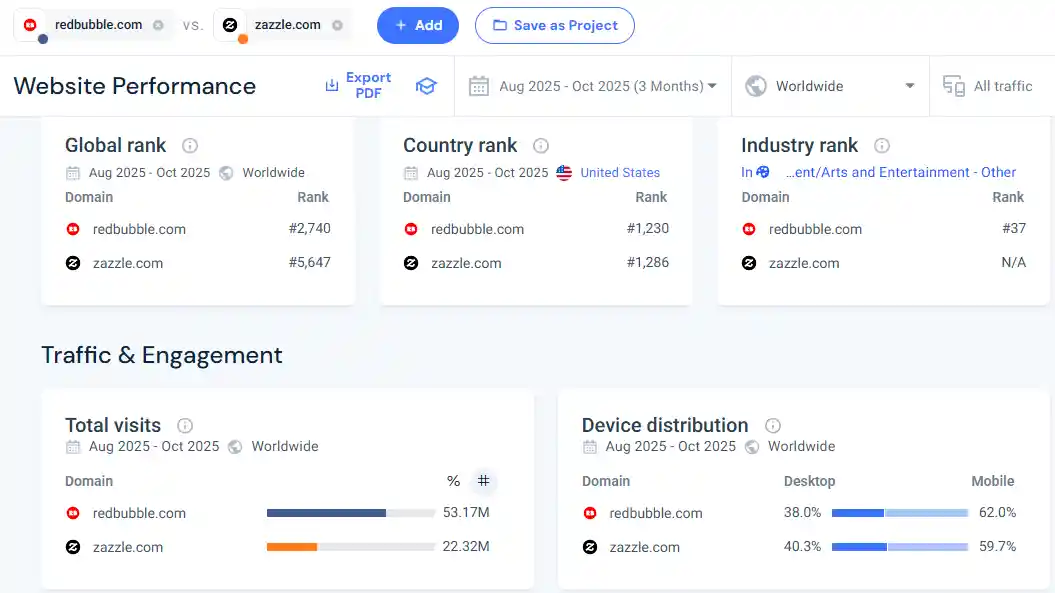
Audience Reach
Redbubble's audience is largely composed of art enthusiasts and those looking for unique, artist-driven products. Imagine stepping into an indie boutique filled with one-of-a-kind items that you won't find anywhere else. This makes it a perfect platform for artists wanting to reach people who appreciate creativity and originality.
Zazzle caters to a broader audience, including businesses seeking custom promotional materials and individuals wanting personalized gifts. Picture walking into a store where you can customize everything from t-shirts to wedding invitations to match your exact specifications. This broad appeal makes Zazzle ideal for anyone needing highly tailored products.
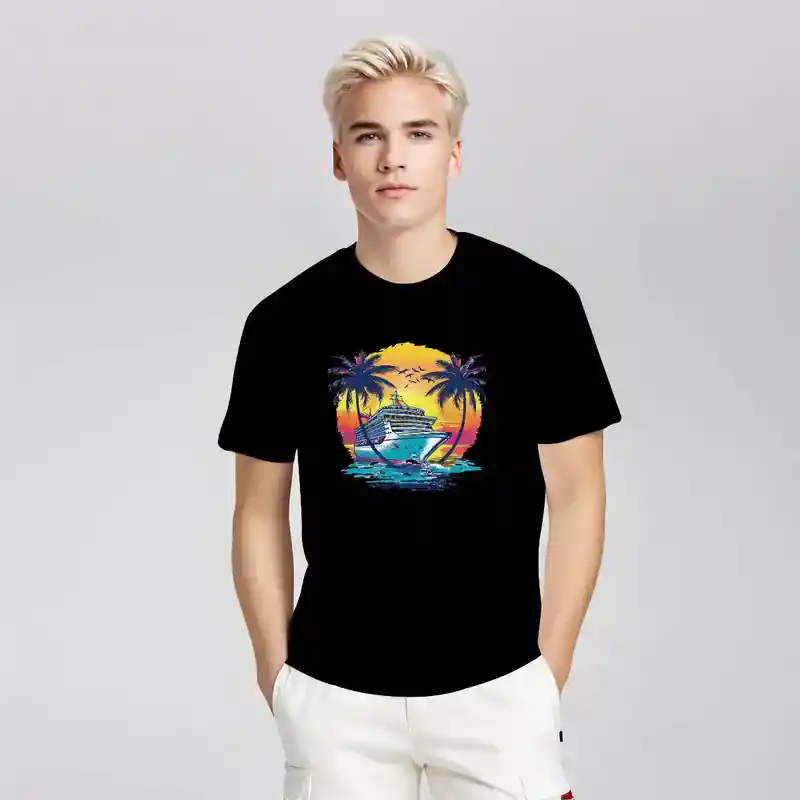
Ease of Use
Redbubble is known for its straightforward setup process, making it easy for artists to upload designs and start selling quickly. It's like setting up a stall at a local craft fair—simple, intuitive, and hassle-free. You don't need to be tech-savvy to get started, which is great if you're more focused on creating than navigating complex systems.
Zazzle offers more complex customization options, which can be a bit overwhelming at first but provide greater flexibility once you get the hang of it. Think of it as having a workshop full of advanced tools at your disposal; it might take some time to learn how to use them all effectively, but the possibilities are endless once you do.
If you're weighing the pros and cons of using Zazzle, ease of use is often mentioned—its tools are powerful but come with a learning curve that might challenge beginners.
Legal Considerations
Legal aspects are crucial when choosing a platform to sell your designs. Redbubble has clear policies protecting artists' rights and ensuring that uploaded designs do not infringe on copyrights. It's like having a safety net that lets you create freely without worrying about legal issues cropping up unexpectedly.
Zazzle also has stringent guidelines but offers additional features for businesses needing bulk orders or custom branding solutions. Think of it as having both creative freedom and business security; you can focus on designing while knowing that the platform supports your business needs comprehensively.
Product Variety and Customization
Both platforms offer a wide range of products, but Zazzle takes customization to the next level. On Redbubble, you can find standard items like apparel, home decor, and accessories—all showcasing unique designs created by independent artists. It's like shopping in a gallery where each piece tells its own story.
Zazzle goes beyond with options like skateboards, custom postage stamps, and even fabric. If you're someone who loves having endless choices and the ability to tweak every detail, Zazzle will feel like a playground filled with limitless creative potential.
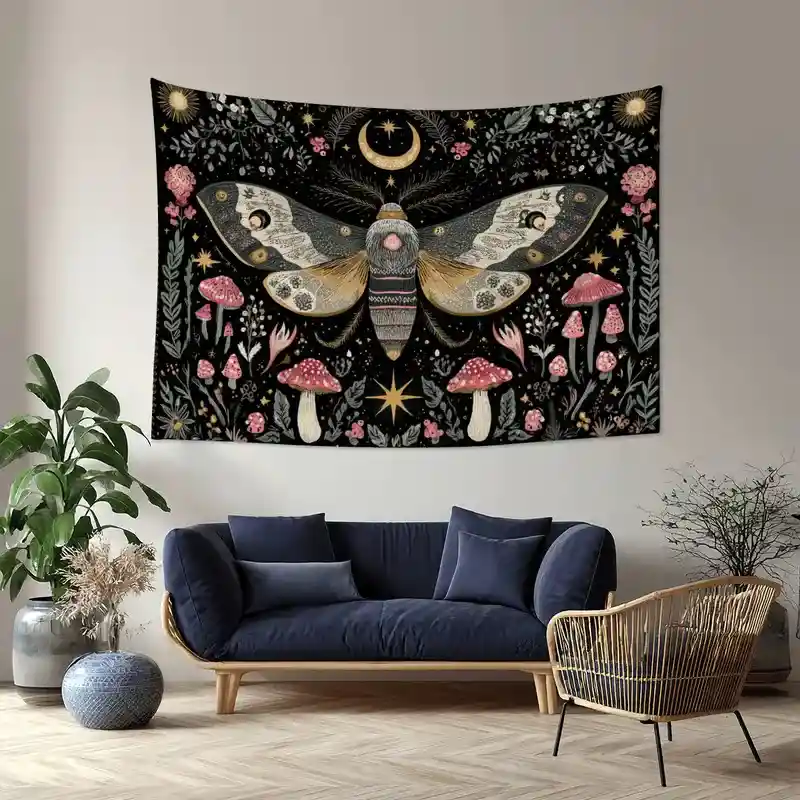
Quality and Pricing
Quality-wise, both platforms maintain high standards for their products, ensuring that customers receive items they'll love. However, pricing can vary significantly between the two. Redbubble sets prices for products, with artists earning a commission on each sale. It's straightforward—like buying from a retail store where prices are fixed and there's no guesswork involved.
Zazzle allows sellers to set their own profit margins, giving more control over pricing but also requiring more strategic planning. Imagine running your own boutique where you decide the price tags; this can be empowering but also demands careful consideration of market trends and customer expectations.
Pros & Cons of Redbubble vs Zazzle
Choosing between Redbubble and Zazzle can feel like deciding whether to cook a meal at home or dine out at a customizable restaurant. Each has its perks and pitfalls, depending on what you're looking for. Here's a breakdown to help you weigh your options:
Redbubble
Pros:
- Artist Community: Strong, supportive network of independent artists.
- Ease of Use: Simple setup process, great for beginners.
- Quality Assurance: Consistently high-quality products.
- Global Reach: Large audience of art enthusiasts and buyers worldwide.
Cons:
- Limited Customization: Fewer options for product personalization by buyers.
- Fixed Pricing: Artists earn a commission, but have less control over final product prices.
- Niche Market: Primarily attracts art lovers, which might limit broader commercial appeal.
Zazzle
Pros:
- Customization: Extensive customization options for almost every product imaginable.
- Product Range: Offers unique items like skateboards and custom postage stamps.
- Pricing Control: Sellers can set their own profit margins, offering more pricing flexibility.
- Business Solutions: Additional features for bulk orders and branding, ideal for businesses.
- Advanced Tools: More tools for detailed personalization, appealing to those who love customization.
Cons:
- Complexity: Can be overwhelming due to the extensive customization features available.
- Learning Curve: Requires more time to master the platform's tools and features.
- Variable Quality: Product quality can vary depending on the customization choices made by users.
- Higher Costs: Some customized items can be pricier compared to standard products on other platforms.

Reddit Review: What's Better Zazzle or Redbubble?
On Reddit, users share their candid experiences, from Redbubble's welcoming artist community to Zazzle's vast customization options. Curious about which platform might suit your needs best? Let's dive into these real-world reviews and find out!
mermaidpaint
I have far more sales on Zazzle than Redbubble. I have 14 sales on Zazzle from the last three months, compared to none on Redbubble.
Fye_Maximus
Redbubble gets way more traffic than Zazzle and does better in Google search. But Zazzle is far from dead. I make about $700 - $1200 on RB every month, and about $250 - $350 on Zazzle.
The problem with Zazzle is their uploading really sucks, and they have sooooo many products to choose from. I settled on just uploading to 10 products for each design, the ones that I found to sell the most, and have stuck with that.
Artai55a
As far as products go, they are both good and i love the Zazzle leggings which are made by Artofwhere which is also a good POD or dropship site and I sell more there than on Zazzle.
The Redbubble website is easy and quick to upload new designs where Zazzle is scattered and very time consuming and has a lot of bugs. Overall Zazzle requires more effort to make sales than many other POD sites, but they occasionally make small improvements so I think it's worth having a shop with some designs for an extra small stream of income.
Yes, you can sell the same designs on both sites and if you have the time I think it's worth trying both and every POD site has a different audience. My strategy was to spend half an hour setting up a bunch of POD sites each and adding about 30 designs and then waiting three Months and then see what works and look at the Analytics. You should be able to get a general idea on each site what is popular by looking at what is trending on the main page and Zazzle appears to favor inspirational quotes and greeting cards and Redbubble favors cute stickers. If your kind of designs are intended for a certain type of product, it is good to search trending for that product. For example, I do a lot of patterns and occasionally sell them on comforters and duvet covers and they earn a lot more than stickers, but they never appear in the trending results where a sale of five stickers occasionally makes the front page.
tes3a_
I've made more sales on Redbubble than Zazzle, Redbubble is easy to upload and has more traffic, but Zazzle has some unique products that you can work with. Anyway you should booth give them a try and upload to as many platforms as you can than focus on what's working for you.
Read more:

Which Platform Is Best for Your: Redbubble or Zazzle?
Deciding between Redbubble and Zazzle can feel like choosing between two exciting adventure paths. Redbubble is praised for its vibrant artist community and ease of use, making it perfect for newcomers. In contrast, Zazzle offers extensive customization options, ideal for those who love having control over every detail.
Both platforms offer a wide range of products, but while Redbubble focuses on everyday items like t-shirts and home decor, Zazzle excels in personalized gifts and business-related products. When it comes to earnings, Redbubble's straightforward royalty system is great for beginners, whereas Zazzle provides additional opportunities like volume bonuses and referrals.
Ultimately, the best platform depends on your specific needs and what you value most in your creative process. Dive into both, explore their offerings, and find the one that resonates with your vision!
Read more:
Conclusion
Choosing between Redbubble and Zazzle is like picking the right tool for your creative journey. Both platforms have their unique strengths. Redbubble's simplicity and supportive community make it a great choice for beginners, while Zazzle's potential for higher earnings through various bonuses can be appealing for those willing to invest more time.
Ultimately, the best choice depends on your specific needs and goals. Dive into both, explore their features, and find the one that resonates with your vision. Happy creating!
FAQs
Can I sell on Redbubble and Zazzle at the same time?
Absolutely! Think of it as diversifying your creative portfolio.
Will both Redbubble and Zazzle ship globally?
Yes, both platforms offer global shipping, ensuring your art reaches fans worldwide.
Is a business license necessary for selling on Redbubble and Zazzle?
Nope, you don't need a business license to start selling on either platform.
Besides Redbubble and Zazzle, what other platforms can I choose?
You might also explore options like PrintKK, Printful, or Gelato for more flexibility and features.


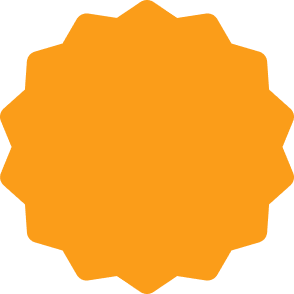







 Global Shipping
Global Shipping





























